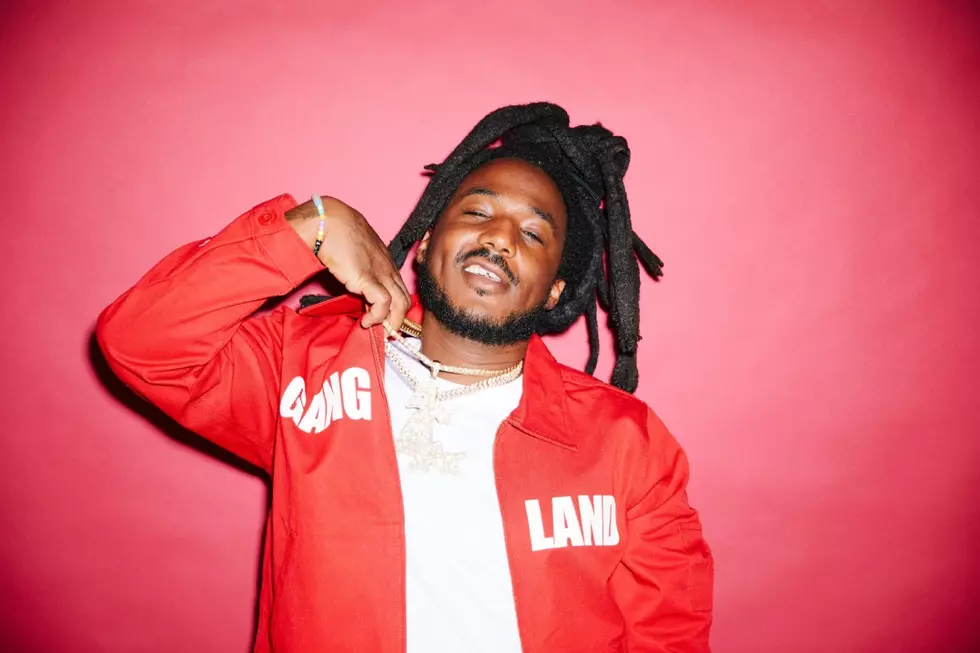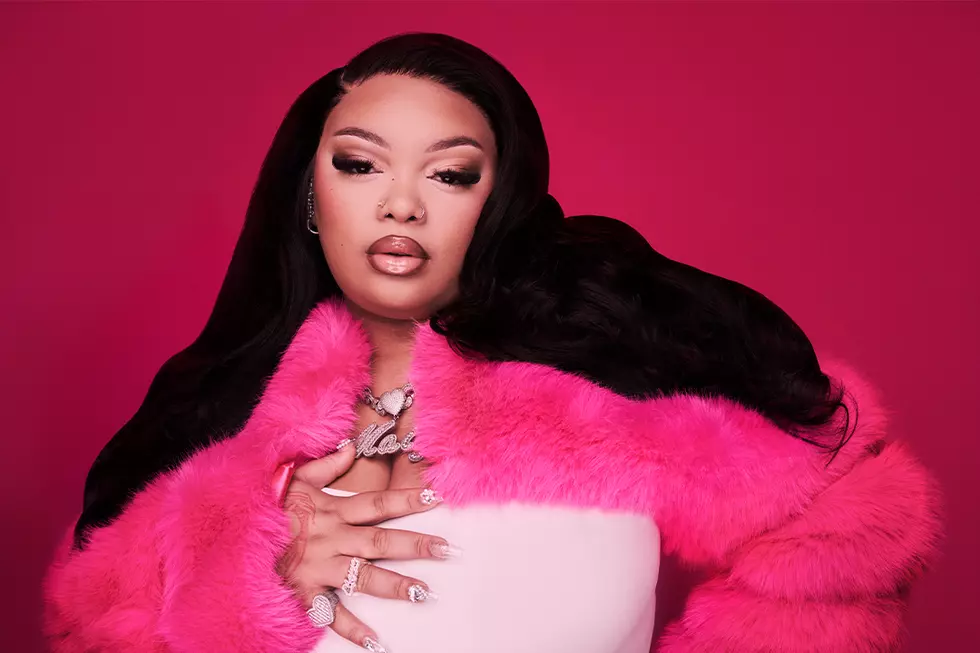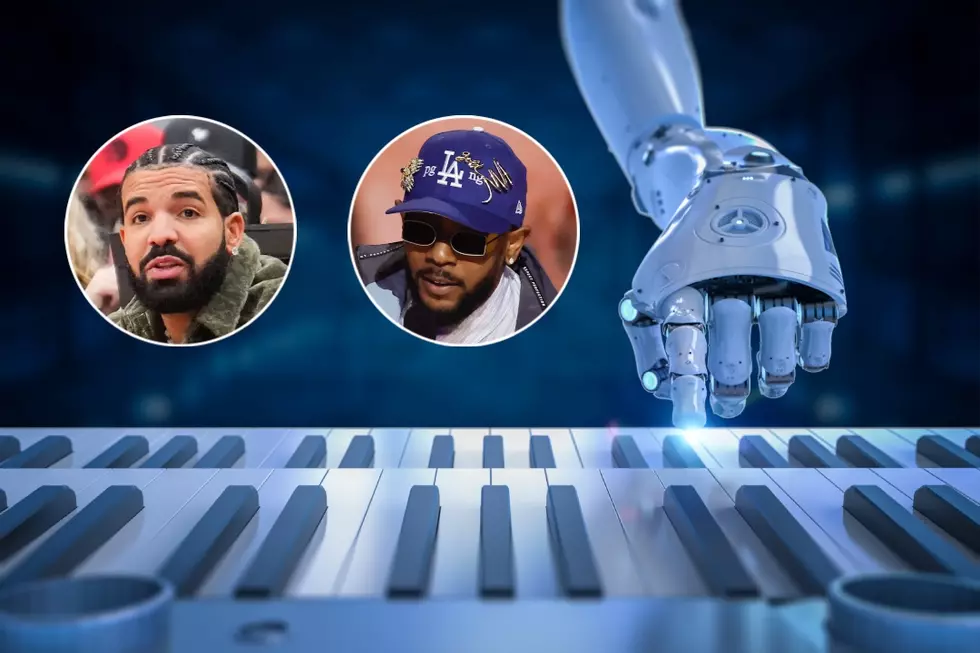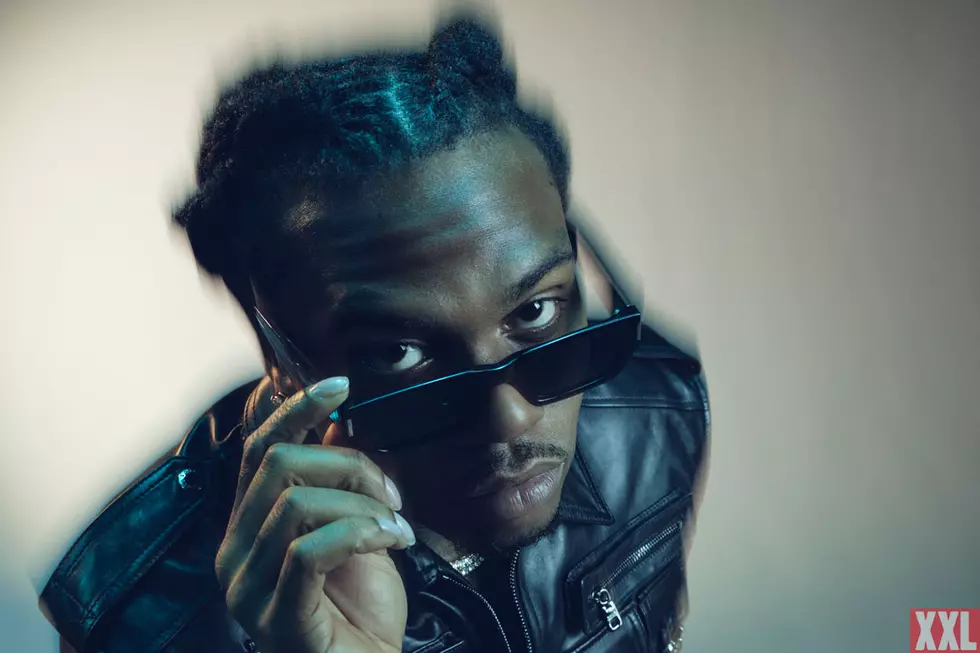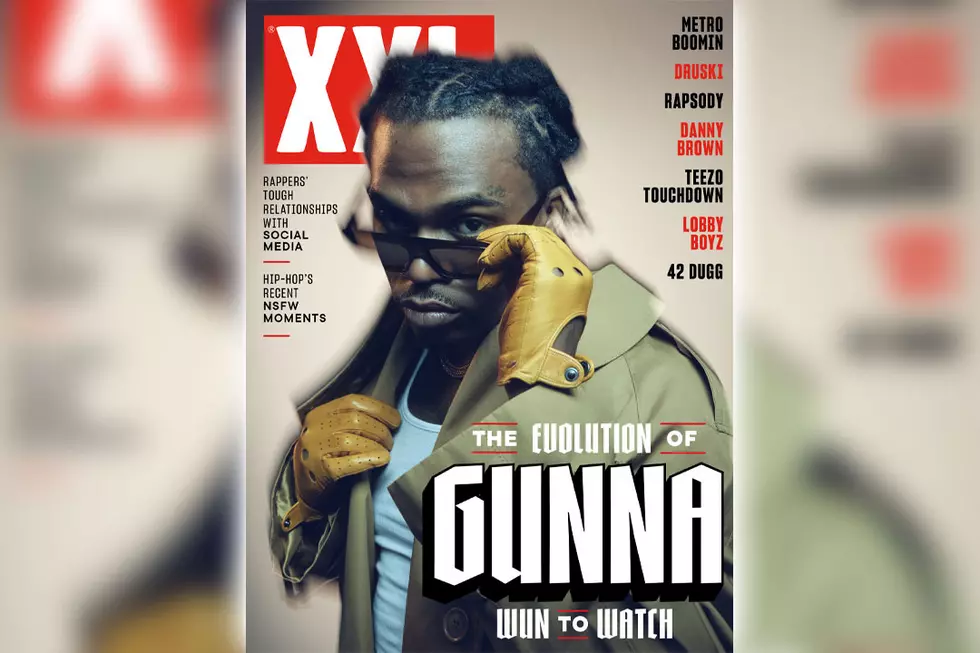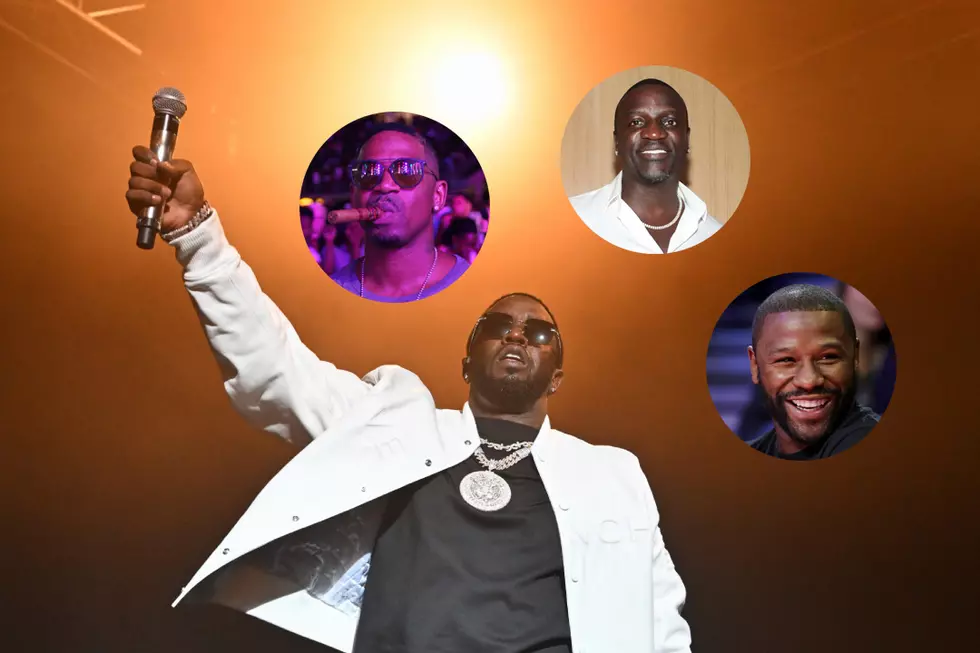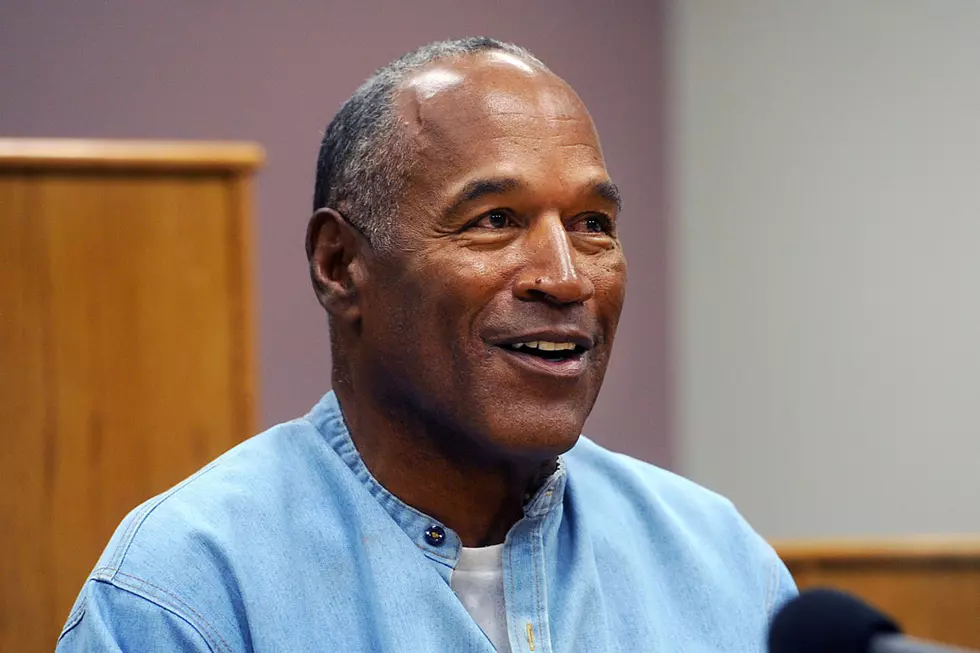
Don Cannon’s Tips For New Artists: “Stay True To What You Stand For”
Over the last decade, DJ Don Cannon has become one of hip-hop’s most successful producers and mixtape DJs, working with hip-hop heavyweights including Lil Wayne “Cannon (AMG Remix),” Young Jeezy “Go Crazy” and OutKast “The Art Of Storytellin’ Part 4.”
Working with his partner DJ Drama, Cannon has been instrumental in the success of the famous Gangsta Grillz mixtape series, co-hosting numerous tapes that have helped to solidify the rep of many of hip-hop’s biggest rappers. Meanwhile, he has become a successful club DJ maintaining regular spots at venues in Las Vegas, Atlanta, Tokyo and Los Angeles’ Playhouse Nightclub.
Last month, Don Cannon tacked another accomplishment onto his overflowing resume, being named Def Jam’s vice president of A&R, assuming the role after Sha Money XL left the position for an executive role at Epic. XXL spoke with Cannon earlier this week on what goes into making a successful mixtape, how he hopes to develop new artists at Def Jam and how the game has changed for A&R’s over the last ten years. —B.J. Steiner (@DocZeus)
On Finding And Developing New Artists
"My process in A&R is really just being a musician. As a musician I create, and I try to tailor it. It's hard—when they’re tailoring, they make suits for different people, you try to make sure it fits that person perfectly, to the T. As a producer that’s what I do, and that’s what I look for when I’m doing A&R. Anybody that starts out as a DJ or a producer or a writer and can custom make their records like that, you know, is an A&R in my eyes. So you know I kind of just custom make records, or find records that I feel like I can customize to an artist, if anything.
"You’ve got to get in with an artist. Take Young Jeezy—you can’t just give him a record, because he might not be feeling that way at a certain time. His whole mind frame might be riding boats. So you figure out why he wants to ride boats. And once you figure that out, you can dig into it. A lot of people make records for Beyoncé, but they wind up just giving them a record and think that that’s going to work. But Beyoncé might feel like being a mother at the time, she might want to make mother records. She might have high intensity, she might like food at the time, so you’ve got to go in there, and really think of the artist and see where their mindset is and then work from there, and that’s how you get the record.
"Both [new and established artists] are creating identity; even though it’s a star, sometimes every time out you’re trying to build something new on them. For new artists it’s like you’re building an artist from the ground up, you’re giving them an identity. And that’s the same with artists, you know sometimes I go to the label and find out the artist is just sitting there, that has the potential of being big, and go in and try and mold them into something that they’re supposed to be. Same thing with older artists, they tend to make new tracks for themselves. I’m not talking about music tracks, I’m talking about like tracks, like trying to make new paths for them, like as their career beings to unfold. So I try to get in there and do that for them as well.
"With a new artist, it’s all about working, and putting in your 10,000 hours. You know, I want them to get in, find out who they are and polish their skills. And then once you get through that part, you can start making records and see what fits them and what would be their identity. Sometimes it might come out they want to be a political rapper. So you go in and figure out what they stand for, what people would believe in, what’s your campaign status going to be. Are you going to stand by this for a couple of albums or are you going to stand by this for one album? Are you going to be that guy? A lot of people pick something that they want to be, and then they change it down the road and they disconnect somewhere because, you let your nation campaign for something else. So it’s very very important that with a new artist you kind of go in there and build up a story, and then off of that you get those songs ready for them and ready to go.
"A lot of these kids get pressured. You know they get bills, and they need a hit record to come out or you’re not coming out and you need a look, you need to go to radio, you know. That approach is getting a little old school to me. I feel like with the new age and the new wave, it’s like, you know, pick what’s true, i.e. Kendrick Lamar. Kendrick Lamar was able to come out, and he made his own lane in a world of two lanes of rap. So it’s easier for these kids to come out now and have their own lane. You’ve just got to stay true and do something different, what you feel and what you stand for. If you don’t have that then I don’t think you’re going to make it."
What Makes A Successful Mixtape
"There’s a lot of things that go into a mixtape; that’s basically starting your campaign as a rapper. What you want to stand for, what kind of music you want to make, what kind of audience you are trying to target. Some people just try to attack the world. You can’t just attack the world, you know what I’m saying? You’ve got to attack an audience first. It’s like Kanye when he first came out, his main thing was, let’s start from the ground up with me as a person. Me as a person dropped out of school. So let’s talk to the college people that dropped out. Let’s try to make them feel like they aren’t by themselves. So that was his whole campaign and he started his whole career off of that.
"So I feel like with mixtapes you can’t just have a mixtape called I Get Money. What’s your campaign? Like okay, you get money? Everybody gets money. Who are you talking to? So you have Kendrick, say he would do a mixtape, he would probably call it Compton, because that’s where he started, that’s where he’s coming from. The point across is that he’s trying to live for all the kids to make it out of Compton. I get it. So when you pick up a mixtape you want to know what you’re doing. You want to know what kind of audience you’re going for. The artwork is important because that has to be cohesive with the music. Marketing for it. Some people just take the mixtape and let it die out and probably move on to the next project instead of working it. There is no time limit. God has the time, he has the stopwatch. I seen records start now, and don’t break until January. So you need to keep working records until you feel it and you keep going.
"It’s a tough place to be because you’ll be like, oh man, if it’s not working this long, how long is it going to take me to get a new record up and working and moving around? But I feel like you should stick with one. If you have that gut feeling that you have that record then you should stick with it and just see it all the way out. 6 months won't tell it, 8 months won't tell it, a year won't tell it. I’ve had records that I did in 2009 that I haven’t sold, and then they’ll call me today and be like, yo, I want this record. Damn near 4 or 5 years old. So I feel like you’ve just got to keep going with your project. Like I said before, make sure that you find the audience to direct your arrow, to target—those are the basic ingredients.
"When Tip did his, he was down with the king. He had to get everybody that was down with him after he went to jail. You know he called himself the King of the South, it was down with the king, who’s down with the king, I never left. You had Jeezy which was the street, like the trap or die king. So he did Trap or Die. You see how all these have it? You’ve got Wayne who is a southern rapper, but can really really really really rap on a lot of records, and he worked hard but he didn’t get his props, so he did a tape called Dedication, which was dedicated to what he was doing. All of these albums or mixtapes have a certain feel. And I could go on and on."
On How The A&R Game Has Changed
"I feel like the A&R game has gotten lazy, as far as promotions has gotten lazy. A lot of the things got lazy, that’s why a lot of these kids become what they become on their own, and claim nothing but themselves. So I feel like I have to bring that old school kind of feel back where you actually develop a whole thing into what it’s supposed to be. You’ve got to be in there day and night working on projects, and actually be there for those artists. You know you go back and forth with what you want to do, what you’re exploring, how to do it. It’s very hard without guidance. So if you’ve got that extra person that’s going to help you with guidance, it just takes you a long way. And that’s been lacking over the last 10 years in the system.
"People are putting out projects saying, “Yeah, I was in on that.” Well what did you do? They never sat there with you when you got writer’s block. You know there’s a lot of stuff that goes into creation, and I think A&R should go back to those producers who have put in that work and understand and study music and culture change. I think it’s starting to go back to it now, you got people like me, No ID, Rick Rubin, a lot of these guys that are back in these offices are helping. Even with Jay Z with the status that he is, he had four brainchild producers that know what they’re doing, and they’re helping him with Holy Grail. You had Swizz Beats, who broke many artists, you had Pharrell who broke many artists, you had Timbaland who broke many artists. He ain’t do it by himself.
"And what's better than a label like Def Jam in the history of rap? It is the home of rap music. Other labels do good, but as far as Def Jam, this is the house that rap built. Many many many superstars came out of there and they all had help, from the Beastie Boys, LL Cool J. I’m just sad that it took us so long to realize that we need to get these producers back in to help A&R these projects. So now that we have that, what better house to have it than Def Jam? We can build rap artists. It’s better for the business."
On What Makes A Successful DJ Set
"You have to know the music, know the people dancing, know what’s going on, know what’s happening in the world and know a little bit of the hit records and little bit of those sleeper records. A lot of stuff goes into being a big DJ. I feel like the main thing is being skilled. A lot of DJ’s aren’t skilled. You can’t call yourself a DJ for pressing buttons. I could press buttons right now and do what I need to do, but if you pull the turntable out, I know how to scratch, I know how to blend. There’s certain things that come with the craft. You can’t pull out a shoe and hit the nail in the wall and say “I’m a carpenter.” You use a hammer, you didn’t make a hole first with a pencil and then put it in there. You have to know the craft, you can’t just call yourself a plumber because you took a hanger and got the toilet tissue out of the toilet. There’s a science behind everything. You must know the craft, you must be able to control a crowd, you must be able to play songs and do things that most DJ’s wont go to the limits and do.
"[It's] awesome because I’m actually in the club listening to what people like for different regions. I get to go to different regions and see what works for everybody. It’s safe to say that Atlanta is a melting pot, and it helped me become good at what I do, because you’ve got people from California, people from the Midwest, people from the South, and North. I actually, as a producer, I customize my sound by being down here, by having a little East Coast flavor or down South flavor. All that stuff is important, knowing the ear, knowing the audience, knowing what’s going on. That’s how I get it right. Across the nation, those types of places, you get a feel for what people like. And that’s all it’s about."
More From XXL

